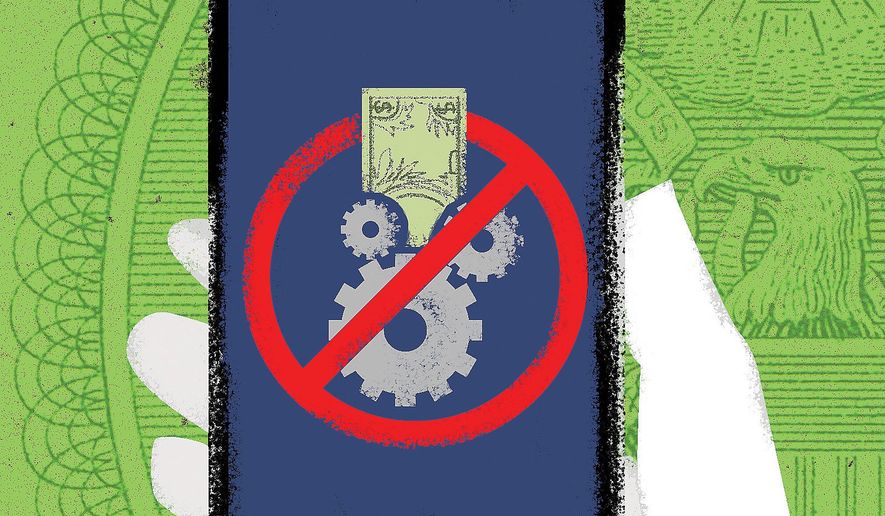OPINION:
The teenager unable to look up from her phone has quickly become a cliche. But we now all live by our phones and other mobile devices: High-powered business executives, farmers planting crops, parents shuttling kids to school on the way to work, hikers planning their routes, elders texting their grandchildren and millions of small businesses managing every facet of their days. Imagine if our favorite devices were no longer available. It could happen.
A small cadre of financial wheeler-dealers masquerading as a company called Neodron wants the U.S. International Trade Commission or ITC to ban a vast swath of mobile devices from the U.S. market. Neodron, incorporated late last year in Ireland, alleges that touchscreen devices from major U.S. companies Amazon, Dell, HP, Microsoft and Motorola and companies with massive U.S. presence like Samsung contain technology that infringes on its patents. Bear in mind, Neodron didn’t actually invent anything or create new products or technological advances. It acquired a few patents, yelled “infringement” and asked the ITC to ban the products in the hopes of getting a big settlement.
If Neodron were successful in convincing the ITC to close the U.S. market to these devices, it could ban the importation of 80 percent of Android tablets, 86 percent of Windows tablets, more than 50 percent of Android smartphones and 97 percent of premium Android smartphones. Consider the effect of such a ban. It means fewer choices and higher prices for millions of American consumers and businesses. It means less competition leading to a smartphone monopoly for Apple at the high end and an opening at the lower end for Chinese device makers, like Huawei and ZTE.
At a time when there is bipartisan support for limiting China’s penetration of the U.S. market due to cybersecurity and unfair trade practices, an exclusion order could punch a hole in that policy to help China’s state-supported companies push their way to the front of the pack in the race for the coming 5G telecommunications technology commercial bonanza.
Consider, too, the ripple effects on the U.S. economy and U.S. consumers. American consumers use smartphones for mobile banking and personal finance, to monitor and control medical conditions, to keep in close touch with family, to control household security systems, and to seek job and educational opportunities. Businesses of all sizes have incorporated smartphones, tablets and laptops as essential features of doing business. Many entrepreneurs thrive using only mobile technology. In the emerging Internet of Things, our phones, laptops and tablets connect us to places, people and resources that are part of our daily lives.
But Neodron does not care about any of that. It, like many others, has become skilled at using or, more accurately, misusing the ITC as a point of leverage to force an outsized settlement. Although Neodron, and many others like it, want money, the ITC, a trade agency, cannot award Neodron compensatory damages like a court. The ITC can only issue an exclusion order which, when you think about it, would not benefit Neodron and would impose substantial costs on the U.S. economy and ordinary Americans.
So why are they doing this? Neodron also filed a lawsuit in U.S. district court, where it asked for what it wants — money damages. But the ITC is quicker than the district courts and the mere threat of losing access to the U.S. market can pressure companies to settle and make Neodron and those like it very rich very quickly.
In the scheme of things, the U.S. district courts are the appropriate venue to resolve licensing disputes between private parties and award compensatory damages, while the ITC is the appropriate venue to protect the broader interests of U.S. domestic industries from unfair trade practices. The ITC should not simply be a pawn deployed to multiply patent disputes, drive up costs and checkmate opponents. Yet, at the end of the day, entities like Neodron only care about one thing — cashing in on their predatory game of chess.
• Gerard Scimeca is a lawyer and vice president of CASE, Consumer Action for a Strong Economy.




Please read our comment policy before commenting.